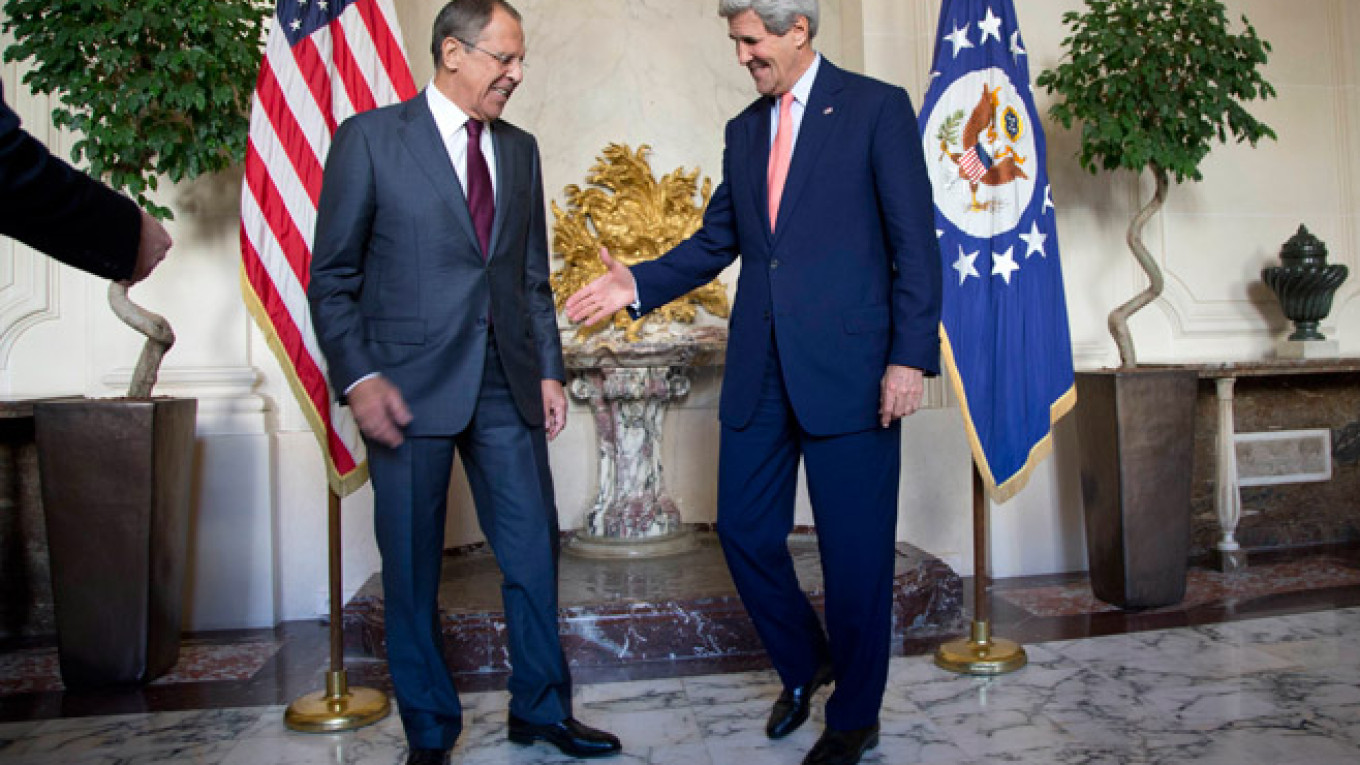The Kremlin is currently engaged in a delicate diplomatic dance to get Western sanctions lifted without creating an appearance of ever asking for it. It is driven both by despair over the mounting economic costs from sanctions and the desire to maintain Putin's skyrocketing approval ratings, now largely fueled by the confrontation with the West.
The plan is to create arrangements that would allow Moscow to claim it had not traded its strategic interests but persuaded the West to treat Russia as a geopolitical equal and recognize the error of "self-defeating" sanctions.
President Vladimir Putin is keen on not repeating the fatal blunders of former leaders Mikhail Gorbachev and Boris Yeltsin, who allowed their relations with the West to be perceived as a humiliating sequence of unilateral concessions made by Russia.
Two overlapping strategies are deployed to avoid the appearance caving in to Western pressure.
One is to evade engagement on Western roadmaps for sanction relief in exchange for Russia's full implementation of the Minsk Protocol in eastern Ukraine. Western terms, made public by U.S. and European Union officials, include complete withdrawal of Russian forces from eastern Ukraine, restoration of Ukraine's sovereignty and control over its border.
Foreign Minister Sergei Lavrov made clear that Russia would not get into such horse-trading and would not ask for sanction relief, fearing this could be interpreted as a sign of Putin's vulnerability.
Nor will Moscow re-engage the West on important issues without a clear commitment to lift sanctions. In Paris last week, Lavrov brushed off U.S. Secretary of State John Kerry's overtures for new talks on nuclear arms control and even later disavowed his private promise to Kerry to resume intelligence-sharing on the Islamic State. Lavrov called Kerry's cherry-picking approach "consumerist," implying that without sanction relief, re-engagement would be Russia's unilateral concession to Washington.
The second strategy is to bamboozle the West with talk about "the new world order" and the need for a new "consensus of responsible powers." By elevating the discussion to a geopolitical level, Moscow seeks to create a framework that would allow it to claim a "strategic win" that justified "small concessions" on Ukraine to get sanctions lifted. This was Putin's offer at the Valdai conference, his bluster masking a desperation to save face.
Both strategies create a "discourse trap" for Moscow. Success depends on the West buying into Russia's "victimhood narrative." A big if.
Vladimir Frolov is president of LEFF Group, a government relations and PR company.
A Message from The Moscow Times:
Dear readers,
We are facing unprecedented challenges. Russia's Prosecutor General's Office has designated The Moscow Times as an "undesirable" organization, criminalizing our work and putting our staff at risk of prosecution. This follows our earlier unjust labeling as a "foreign agent."
These actions are direct attempts to silence independent journalism in Russia. The authorities claim our work "discredits the decisions of the Russian leadership." We see things differently: we strive to provide accurate, unbiased reporting on Russia.
We, the journalists of The Moscow Times, refuse to be silenced. But to continue our work, we need your help.
Your support, no matter how small, makes a world of difference. If you can, please support us monthly starting from just $2. It's quick to set up, and every contribution makes a significant impact.
By supporting The Moscow Times, you're defending open, independent journalism in the face of repression. Thank you for standing with us.
Remind me later.


